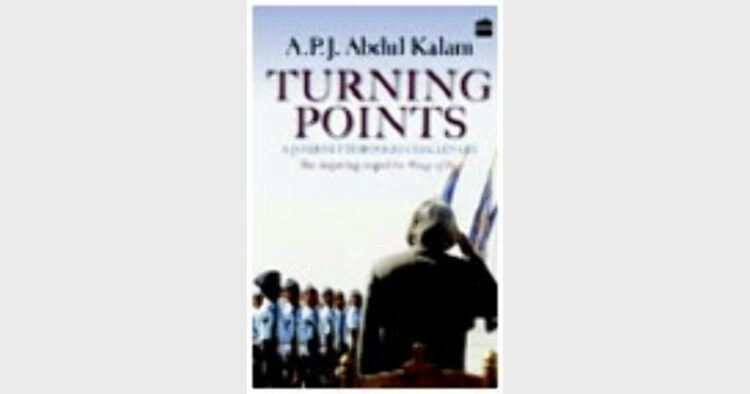Dr Vaidehi Nathan
Turning Points: A Journey Through Challenges, APJ Abdul Kalam, Harper Collins, Pp 182 (PB), Rs 199.00
APJ Abdul Kalam continues to engage the minds and hearts of Indians, years after he demitted office as President. His book Wings of Fire was a huge success. His latest book Turning Points: A Journey Through Challenges is a sequel to that. In this he discusses his time at Rashtrapati Bhawan, sharing with readers some candid moments and the political decisions he had to take.
One of the toughest was the decision to dissolve the Bihar assembly. It was later quashed by the Supreme Court. Kalam offered to resign taking responsibility for it. But the Prime Minister prevailed upon him not to.
Constant and unrestrained interaction with people was the hallmark of Kalam’s presidency. He talked to people, wrote to them, invited citizens to write to him and responded to them in an unprecedented way. He says that he received thousands of letters daily and his office tried to respond to them.
In his farewell speech to the Nation as the Head of State, Kalam laid out a ten point mission. “This then remains my mission in life: to connect the billion hearts and minds of the people of India in our multicultural society through the ten pillars of development and to embed the self-confidence that ‘we can do it.”
Kalam generously mentions the names of people whom he came into contact with and praises all for their contribution to his understanding. Field Marshal Manekshaw, the Prime Ministers during his term as President, the scientists who were former colleagues, writers like Kushwant Singh are some of those whom Kalam remembers in the book.
Kalam discusses in some detail his visit to Gujarat a few months after the riots in 2002. He says he was advised against it by many. Some even suggested that the state government would boycott his visit. “But, to my great surprise, when I landed at Gandhinagar, not only the Chief Minister, but his entire Cabinet and a large number of legislators, officials and members of public were present at the airport.” Narendra Modi accompanied him throughout the visit, going to relief camps and riot affected areas.
“At the end of presidency, I felt satisfied on two counts. When I took charge there was a feeling of gloom and despondency among students. I used to go and tell them to be confident and try and enthuse them…At the end of my tenure, the mood of the youth was different.”
Kalam mentions some of his foreign visits, the important scientific development during his presidency and also his interaction with the defence personnel. All these are narrated in unconcealed national pride. In fact, welling nationalism marks his writing throughout.
The fans of Kalam no doubt would find the book interesting and inspiring. Simple and highly communicative, the former President reaches out to the reader re-assuring them that he was very much one among us and continues to be so.
(Harper Collins, A-53, Sector 57, Noida, Uttar Pradesh, 201 301)














Comments